Our final event in Invercargill, New Zealand was with Forest and Bird Southland branch and we were really looking forward to this event. Our hosts Chris and Brian Rance were very welcoming and Chris showed us their own conservation project before our evening lecture at the Forest and Bird AGM. They have created their own educational centre at their home for visiting school groups and also run a community nursery of native plants. Their property adjoins a protected stand of native bush and they have created peaceful wildlife ponds and trails for visiting children and adults to enjoy. It is such a valuable place for future generations to be able to learn about the native bush and bird life of New Zealand and is a tremendous testament to what can be achieved with passion and persistence.
During the evening, Brian gave an interesting and informative presentation about the local efforts of Forest and Bird and the Yellow-eyed Penguin Trust to monitor and conserve the endemic Yellow-Eyed Penguin population at Te Rere Reserve, Invercargill. This reserve is over thirty years old and is home to a number of these penguins.
‘Since their first contact with humans, yellow-eyed penguins have experienced tough times. They have been caught and eaten, and their forest homes have been destroyed to make way for farms and cities. Nets entangle them at sea and when ashore, introduced predatory mammals have decimated the remaining penguin populations.
By the breeding season of 1990/91 only an estimated 150 pairs were left on the South Island of New Zealand, and it was probably then the rarest penguin in the world. However, through the work of the Yellow-eyed Penguin Trust and others, numbers had increased to an estimated 442 pairs on mainland New Zealand by 2011.’
(Source Yellow-eyed Penguin Trust)

The work of Brian and fellow volunteers includes monitoring the numbers and weights of the penguins each year and we learned that the 2014/15 nesting year was a bad one for this penguin species. The fledglings were underweight, which can affect their chances of survival at sea, and there were a large number of barracuda bites on the penguins. Barracuda bites such as those are previously unheard of and has left a question mark as to why barracuda were in the area in the first place. We certainly hope the penguins have a better breeding season in 2015/16.
Our presentation followed on from Brian’s and there were plenty of questions from the audience afterwards, especially regarding the controversial white shark cage diving operations at Stewart Island. The audience were keen to hear about our experiences of working with sharks, we all had a great evening learning from one another and we went away having experienced the warmth and generosity of Southland’s residents. It was time for us to go onwards and up the West coast of New Zealand towards our events in Nelson.
Thank you to Forest and Bird and to ALL that have been a part of our time in Southland – we couldn’t have done it without you and your kind donations have made a real difference to the fundraising total of Friends for Sharks.



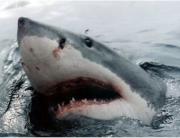
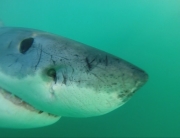
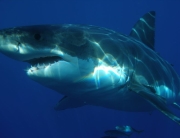
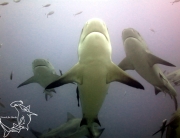
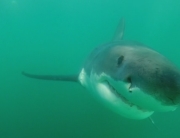










Follow Us